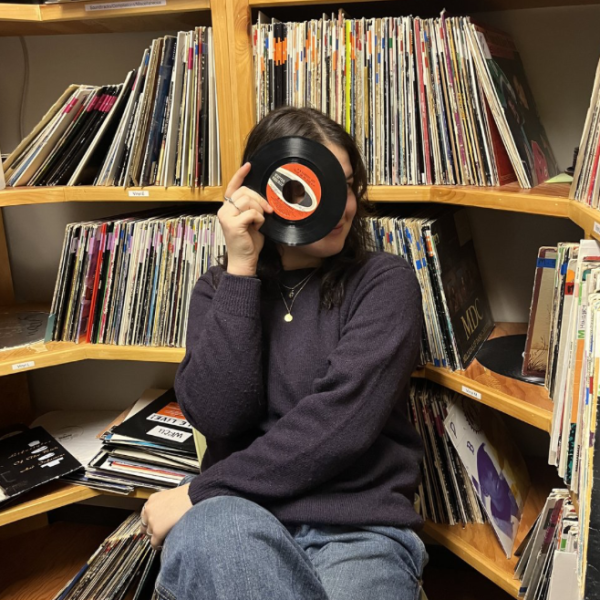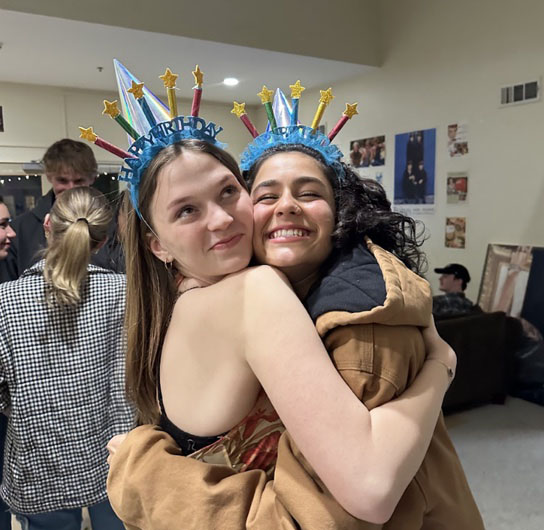Madison Smith
“I’d rather have one thing I can work on and put all my love into and make really good before I move on to the next thing,” said Madison Smith, a Russian and Eurasian Studies (REST) and International Relations double concentrator from Dallas, TX.
“Bouncing around is fun, but if you’re constantly bouncing, you don’t ever rest, and then you stop sleeping, showering and feeding yourself. It’s just not ideal.”
Despite her demonstrated preference for single-mindedness, Smith is incredibly multi-faceted. She came to Colgate hoping to study international relations and work for the government, but soon realized it was not the right fit.
“I had a high school history teacher who worked in counterterrorism for a while,” she said. “And I was like, ‘Ah, here is a grown-up sounding thing that I can do since I’m scared of doing something creative because that’s ‘not real’.’ and then I had a mid-college crisis and now I’m going to work in film and media.”
Although Smith has not formally studied digital art and animation, she said she has always done art.
“And I wondered, what will pay me to do this thing? Also, stories make people happy, they’re fun, and I’m a visual person, so animation has always fascinated me. It would be so cool to spend my life working on projects that are cool and make people so happy.”
In the meantime, Smith has thrown herself into the things that make her happy. She has studied Russian for three years now, and the REST community has helped Smith cement her place on campus.
“It took me a while to get situated here,” she said, “but the Russian group was great from the start, even though the courses were challenging.” She laughed. “Once, I went to see our professor during office hours, and she turned around like a Bond villain in her rolly chair and asked, ‘Are you going to fail this class?’ and I said, ‘Well, I sure hope not!’ I ended up getting a B, so it all turned out fine.”
Aside from studying Russian and making art, Smith also facilitates Yes Means Yes, a seven-week positive sexuality seminar.
“I started facilitating my sophomore year,” she said. “I love it so much. I participated in the program my freshman spring and I decided I’ve been teaching it ever since. It’s very awesome. The program has changed a lot in the past few years. When I was an intern my junior year, we made some big changes. We decided to make the sessions smaller, and we moved to the WMST classroom to make it cosier. We really took a hard look at the syllabi — it’s full of living documents that need to be updated constantly. There’s always a better way to teach something. There’s always a better way to communicate something.”
Smith’s favorite addition to the Yes Means Yes curriculum is the Love Language Test, which gauges how people prefer to give, receive and communicate love to others. Her choice is telling; Smith is focused on communicating love to the people in her life, whether she is cracking a joke in Russian, animating a sequence for an audience or encouraging her peers to be kinder to themselves and their sexual partners. She speaks about her life and her interests with an infectious enthusiasm and laughs in an easy, unguarded way. Smith is, in short, an optimist, following love wherever it leads.









